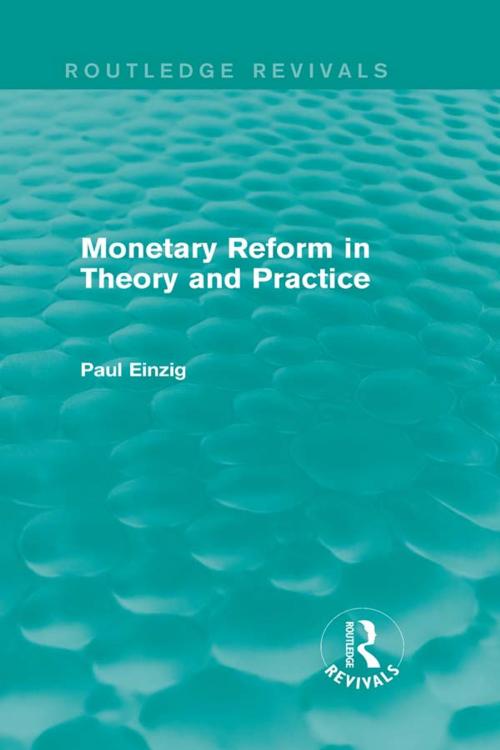Monetary Reform in Theory and Practice (Routledge Revivals)
Business & Finance, Finance & Investing, Finance, Economics| Author: | Paul Einzig | ISBN: | 9781136692833 |
| Publisher: | Taylor and Francis | Publication: | July 16, 2014 |
| Imprint: | Routledge | Language: | English |
| Author: | Paul Einzig |
| ISBN: | 9781136692833 |
| Publisher: | Taylor and Francis |
| Publication: | July 16, 2014 |
| Imprint: | Routledge |
| Language: | English |
First published in 1936, this book gives the reader an insight into the tendencies and spirit of the monetary reform movement as a whole, as accomplished or proposed since the First World War. The author marks the consideration of the overall reform as being more important than specifically looking at the actual proposals and measures involved, and the views he attributes to the various monetary reform schools are therefore composite views of the various factions of those schools. As a comparatively recent convert to the idea of monetary reform, at the time of writing, the author offers a balanced view of the subject as he also has extensive experience of the ideas of the orthodox monetary system. However, he does not believe that monetary reform alone can achieve the desired end without considerable economic planning. Indeed, he suggests that the monetary reform movement he discusses desperately needs to adopt a broader perspective and thus, he suggests a compromise.
First published in 1936, this book gives the reader an insight into the tendencies and spirit of the monetary reform movement as a whole, as accomplished or proposed since the First World War. The author marks the consideration of the overall reform as being more important than specifically looking at the actual proposals and measures involved, and the views he attributes to the various monetary reform schools are therefore composite views of the various factions of those schools. As a comparatively recent convert to the idea of monetary reform, at the time of writing, the author offers a balanced view of the subject as he also has extensive experience of the ideas of the orthodox monetary system. However, he does not believe that monetary reform alone can achieve the desired end without considerable economic planning. Indeed, he suggests that the monetary reform movement he discusses desperately needs to adopt a broader perspective and thus, he suggests a compromise.















